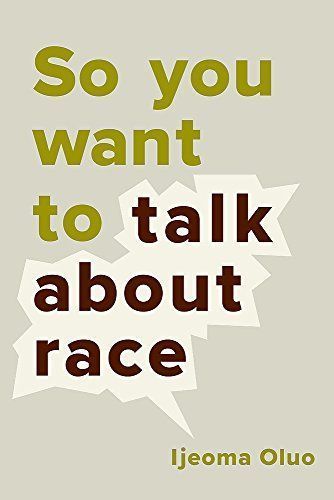
So You Want to Talk About Race
In this breakout book, Ijeoma Oluo explores the complex reality of today's racial landscape--from white privilege and police brutality to systemic discrimination and the Black Lives Matter movement--offering straightforward clarity that readers need to contribute to the dismantling of the racial divide In So You Want to Talk About Race, Editor at Large of The Establishment Ijeoma Oluo offers a contemporary, accessible take on the racial landscape in America, addressing head-on such issues as privilege, police brutality, intersectionality, micro-aggressions, the Black Lives Matter movement, and the "N" word. Perfectly positioned to bridge the gap between people of color and white Americans struggling with race complexities, Oluo answers the questions readers don't dare ask, and explains the concepts that continue to elude everyday Americans. Oluo is an exceptional writer with a rare ability to be straightforward, funny, and effective in her coverage of sensitive, hyper-charged issues in America. Her messages are passionate but finely tuned, and crystalize ideas that would otherwise be vague by empowering them with aha-moment clarity. Her writing brings to mind voices like Ta-Nehisi Coates and Roxane Gay, and Jessica Valenti in Full Frontal Feminism, and a young Gloria Naylor, particularly in Naylor's seminal essay "The Meaning of a Word."
Reviews
Hannah Yoon@yoonreads
Syahla Aurel@owhrel
Abhimat Gautam@abhimat
Mia Caven@miacaven
Sarah Schumacher@smschumacher
momo-reads@momo-reads
fc ♡@fuzzyreads
Anthony@amorriscode
Nast Marrero@nast
renee badenoch@restingbookface
Victoria Alexandra @littlebookvee
jenn kause@kote
Clara Moore@beingmybestshelf
Fraser Simons@frasersimons
Kat A@mellamokat
Cindy Lieberman@chicindy
Flavia Louise@flaviaaalouise
Robin M Cabana@rmcabana
Archita Birla@architaxb
priya@purpleflamingo
Caroline Lewicki@clewicki20
Sahi K@sahibooknerd
Maggie Delano@maggiedelano
Diesel Cheung@insectcondo